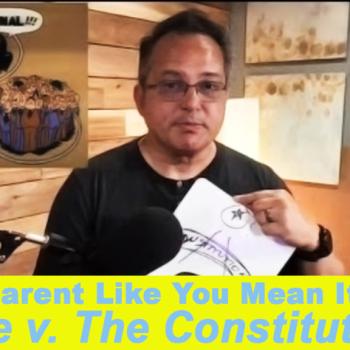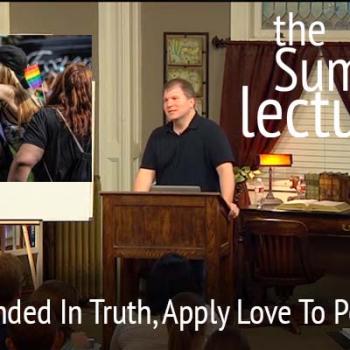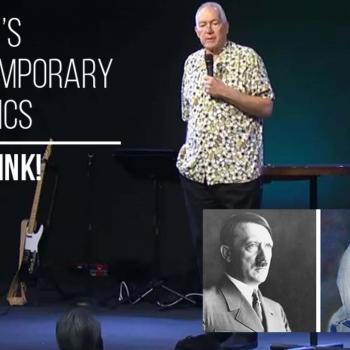
Many people today seem to think that Christ came to give us the keys to the good life. While conservatives are likely to think of Jesus as the one who secures “my best life now,” liberals tend to view him as one who inspires us to have “our best society now.”
Yet throughout his ministry, Jesus kept telling his disciples that his ultimate mission was not to be a helpful teacher, political philosopher, or moral example, but rather a redeemer who was called to give his life as a ransom for many. Join us for this new edition of the White Horse Inn.
Host Quote:
Throughout his ministry, Jesus kept telling his disciples that his ultimate mission wasn’t to become one with his people by living with them in community or being an example, i.e. what would Jesus do.’ But that he came really to die on their behalf. This becomes clear by examining the Gospel texts in which Jesus speaks of his ultimate mission.” – Michael Horton
 Term to Learn:
Term to Learn:
“The Character of the Kingdom of God”
Jesus did not hold that the coming of the kingdom was only a reality to be expected in the more or less near future. Moreover he also proclaimed it as the present fulfillment of the Old Testament prophecy of salvation, manifested in his person and work. However, this does not mean that the statement “the kingdom of heaven has come” exhausts all that can be said. Jesus again and again speaks of the future of the kingdom of God, and that this future bears the character of the consummation and fulfillment of all things. This constitutes the startling point of Jesus’ pronouncements concerning the presence of the kingdom and his messianic self-revelation. They claim the presence of the kingdom and of the Messiah, whereas the great moment of the consummation has not yet arrived.
Any attempt should be rejected which tries to divide the coming of the kingdom into separate parts. The kingdom of heaven appearing in the world with the coming of Christ signifies no less than the end of prophecy (Matt. 11:13; Luke 16:16), the binding of Satan (Matt. 12:28), the wonderful and all-embracing redemption of life (Matt. 11:5; Luke 4:18–19), the authority and power of the Son of Man (Mark 2:10), and the bliss of the poor in spirit (Matt. 5:13). Any attempt to detract from this character either by the application of an ethicizing or a symbolizing reduction, or by detaching the present from the future, is a dissolution of the contents of the gospel of the kingdom. We should rather consider the characteristic and peculiar nature of Jesus’ preaching to be his proclamation of the kingdom in its consummative, eschatological significance both as a present and as a future reality. The fulfillment is there, and yet the kingdom is still to come. The kingdom has come, and yet the fulfillment is in abeyance. (Adapted from Herman Ridderbos, The Coming of the Kingdom, pp. 104–106)
(This podcast is by White Horse Inn. Discovered by e2 media network and our community — copyright is owned by the publisher, not e2 media network, and audio is streamed directly from their servers.)













